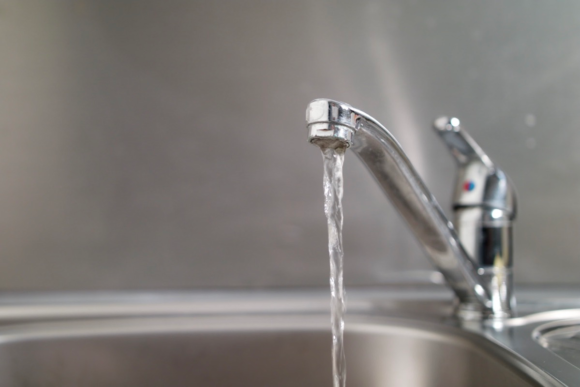Military members, veterans, civilian contractors and family members who served at Camp LeJeune between Aug. 1, 1953 and Dec. 31, 1987 can seek compensation for diseases associated with toxic water exposure under the Camp LeJeune Justice Act.
For nearly 35 years, people living and working at Camp LeJeune and nearby Marine Corps Air Station (MCAS) New River drank, bathed in and cooked with toxic water supplied by two of Camp Lejeune’s eight water treatment plants.
Under the Pact Act of 2022, these people can sue the federal government if their cumulative exposure to toxic chemicals in Camp Lejeune water was at least 30 days.
Read on to learn how to file a Camp Lejeune water lawsuit and what else you need to know about the new law.
Toxic Water at Camp Lejeune
The Marine Corps first acknowledged evidence of toxic water at Camp Lejeune in 1982, according to the CDC. They found that two out of Camp Lejeune’s water treatment plants distributed water containing the following volatile organic compounds (VOCs):
- Trichloroethylene (TCE)
- Tetrachloroethylene (PCE)
- Vinyl chloride
- Benzene
These toxic VOCs are associated with a variety of cancerous and non-cancerous illnesses. In some cases, the concentration of VOCs in Camp Lejeune water sampled was more than 300 times the Environmental Protection Agency’s tolerance, according to a CDC report.
The EPA designated Camp Lejeune and an off-post business, ABC Dry Cleaners, as superfund sites in 1989. EPA superfund sites end up on a national priorities list. Right now the list contains fewer than 1200 total sites.
“A superfund site has such a level of carcinogens or level of toxic radiation that the government has to step in and do remedial action to clean the area,” said Matt Dolman, managing partner of Dolman law group.
Cancers Associated With Camp Lejeune Water
The toxic chemicals that were found in Camp Lejeune water are associated with these cancers, according to the CDC:
- Kidney cancer (TCE)
- Non-Hodgkin lymphoma (TCE, PCE, benzene)
- Multiple myeloma (TCE, benzene)
- Bladder cancer (PCE)
- Leukemia (benzene)
- Liver cancer (TCE, vinyl chloride)
- Breast cancer (TCE, PCE)
- Brain cancer (vinyl chloride)
- Cervical cancer (TCE, PCE)
- Hodgkin’s disease (TCE, PCE)
- Lung cancer (TCE, PCE, vinyl chloride)
- Ovarian cancer (TCE, PCE)
- Prostate cancer (TCE, PCE)
- Rectal cancer (TCE, PCE)
- Esophageal cancer (TCE, PCE)
- Soft tissue cancer (vinyl chloride)
The CDC has posted studies connecting these cancers to VOC exposure on its website.
Other Illnesses Associated With Camp Lejeune Water
In addition to cancers, there are known connections between VOC water contamination and these non-cancerous illnesses, according to the CDC:
- Cardiac defects (TCE)
- End-stage renal disease (TCE, PCE)
- Parkinson’s disease (TCE)
- Scleroderma (TCE)
- Chonal atresia (TCE, PCE)
- Eye defects (TCE, PCE)
- Low birth weight (TCE, PCE)
- Fetal conditions, including death, major malformations, and small for gestational age (TCE, PCE)
- Neural tube defects (TCE, PCE)
- Oral cleft defects (including cleft lip) (TCE, PCE)
- Miscarriage (TCE, PCE, benzene)
- Impaired immune system function (TCE, PCE)
- Neurological effects, including delayed reactions and problems with short-term memory, visual perception, attention, and color vision (TCE, PCE)
- Neurobehavioral performance deficits (delayed recall and deficits in visual perception), decreased blink reflex, and mood effects (i.e., confusion, depression and tension) (TCE, PCE)
- Severe, generalized hypersensitivity skin disorder (an autoimmune-related disease) (TCE, PCE)
- Aplastic anemia (benzene)
- Myelodysplastic syndrome (benzene)
If you have had any of these illnesses after living or working at Camp Lejeune for more than 30 days between 1953 and 1987, you may be eligible for compensation and health care from the federal government.
Steps to Filing a Camp Lejeune Water Claim Lawsuit
Passed as part of the Pact Act in August 2022, the Camp Lejeune Justice Act, allows affected military families, contractors and others to sue the federal government for toxic VOC exposure at Camp Lejeune.
However, the Camp Lejeune Justice Act stipulates certain criteria for filing these lawsuits. First, you must have been exposed to the toxic water for a cumulative total of at least 30 days between Aug. 1, 1953 and Dec. 31, 1987. However, these days do not have to be consecutive.
How to Get Compensation for Camp Lejuene Water Contamination
Dolman said, you must follow these steps to file a lawsuit:
- Start by filing a claim with this Navy Judge Advocate General (JAG) office.
- If the Navy denies your claim, you can file a lawsuit in the Eastern District of North Carolina federal court. If the Navy approves your claim, you can still proceed with a lawsuit if you believe your compensation is insufficient. You can only file for damages in North Carolina’s Eastern District federal court.
The Pact Act denies juries the ability to award punitive damages in toxic Camp Lejeune water cases. Juries may only award compensatory damages, known as actual damages. These can include expenses associated with your health care plan for the rest of your life, Dolman said.
Steps to Filing a VA Claim for Camp Lejeune Water Exposure
In addition to filing a claim with the Navy and a lawsuit in federal court, you can file for VA disability compensation and health care coverage based on illnesses you suffered from Camp Lejeune water exposure.
The VA will pay you disability compensation and health care reimbursement for previous expenses if you suffered any of these 15 illnesses, according to the VA’s website:
- Bladder cancer
- Breast cancer
- Esophageal cancer
- Female infertility
- Hepatic steatosis
- Kidney cancer
- Leukemia
- Lung cancer
- Miscarriage
- Multiple myeloma
- Myelodysplastic syndromes
- Neurobehavioral effects
- Non-Hodgkin’s lymphoma
- Parkinson’s disease
- Renal toxicity
- Scleroderma
While suing the federal government for Camp Lejeune water contamination won’t disrupt any VA benefits you receive, your compensatory damages will be reduced by the amount, if any, the VA has already compensated you through its disability pension process, according to the Pact Act.
You can read more about filing a VA disability claim here.
Compensation For Family Members
Family members living with the illnesses listed in the section above can also apply for compensation directly from the VA. It’s part of the VA’s Camp Lejeune Family Member Program (CLFMP). The agency created the program to help cover health care costs of family members of service members stationed during the time years of contamination exposure.
In November of 2023, the VA expanded its compensation by announcing it would cover out-of-pocket health care costs related to Parkinson’s disease affecting family members of service members stationed at Camp Lejeune during the time of contaminated water.
While the VA offers financial assistance on family member costs, family members are not eligible for disability pensions.




Comments:
About the comments on this site:
These responses are not provided or commissioned by the bank advertiser. Responses have not been reviewed, approved or otherwise endorsed by the bank advertiser. It is not the bank advertiser’s responsibility to ensure all posts and/or questions are answered.
William Brown says
how about water problems at Wurtsmith AFB, Michigan? I was stationed there 1975 thru 1983 and had cancer in my left kidney in which I lost.
Brittany Crocker says
Hi William, have you applied for VA disability for this condition yet? If not, I’d definitely encourage you to. I looked into this issue and found a 2006 VA disability claim appeal in which the VA granted a claim for another veteran diagnosed with cancer after drinking the water at Wurtsmith. (The case file is online here.) Additionally, I recommend writing to your congressional representative as soon as possible.
Britt